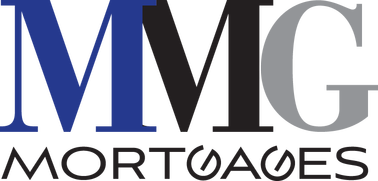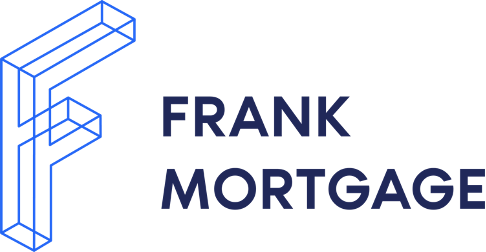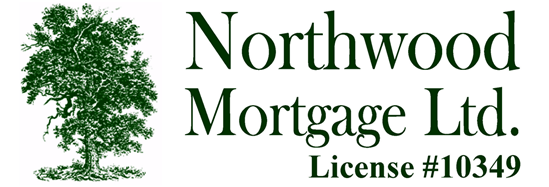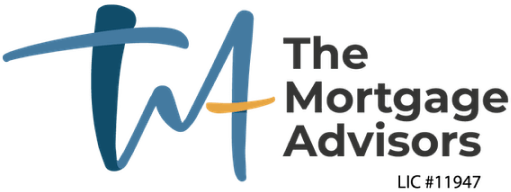Best London, Ont. Mortgage Rates
Find the lowest current mortgage rates by comparing lenders today.
Today's Best Mortgage Rates in London, Ontario
Evaluate London’s best mortgage rates in one place. You can compare the most current mortgage rates and monthly payments from 175+ banks and lenders across Ontario.
Rates are based on an average mortgage of $500,000 and subject to change based on filter criteria.
| Lender
|
Insured
|
Insurable
|
Uninsured
|
|---|---|---|---|
|
MMG Mortgages
|
3.99%
$2,627.39 / month
|
4.19%
$2,681.85 / month
|
4.14%
$2,668.19 / month
|
|
Mortio Financial Corp
|
3.99%
$2,627.39 / month
|
4.24%
$2,695.56 / month
|
4.14%
$2,668.19 / month
|
|
Frank Mortgage
|
4.09%
$2,654.55 / month
|
4.19%
$2,681.85 / month
|
4.09%
$2,654.55 / month
|
|
Northwood Mortgage Ltd.
|
4.14%
$2,668.19 / month
|
4.24%
$2,695.56 / month
|
4.24%
$2,695.56 / month
|
|
Innovation Federal Credit Union
|
4.39%
$2,736.87 / month
|
4.39%
$2,736.87 / month
|
4.39%
$2,736.87 / month
|
|
True North Mortgage
|
2.99%
$2,363.66 / month
|
2.99%
$2,363.66 / month
|
2.99%
$2,363.66 / month
|
|
The Mortgage Advisors
|
3.87%
$2,594.98 / month
|
3.87%
$2,594.98 / month
|
3.87%
$2,594.98 / month
|
|
Nesto
|
3.91%
$2,605.76 / month
|
3.91%
$2,605.76 / month
|
3.91%
$2,605.76 / month
|
|
Hypotheca
|
3.94%
$2,613.86 / month
|
3.94%
$2,613.86 / month
|
3.94%
$2,613.86 / month
|
|
MortgagestoGo
|
3.94%
$2,613.86 / month
|
3.94%
$2,613.86 / month
|
3.94%
$2,613.86 / month
|
|
One Link Mortgage & Financial
|
3.95%
$2,616.57 / month
|
3.95%
$2,616.57 / month
|
3.95%
$2,616.57 / month
|
|
Monster Mortgage
|
3.99%
$2,627.39 / month
|
3.99%
$2,627.39 / month
|
3.99%
$2,627.39 / month
|
|
The Police Credit Union
|
3.99%
$2,627.39 / month
|
3.99%
$2,627.39 / month
|
3.99%
$2,627.39 / month
|
|
Northern Birch Credit Union
|
3.99%
$2,627.39 / month
|
3.99%
$2,627.39 / month
|
3.99%
$2,627.39 / month
|
|
City Wide Financial Corp
|
3.99%
$2,627.39 / month
|
3.99%
$2,627.39 / month
|
3.99%
$2,627.39 / month
|
|
Sudbury Credit Union
|
3.99%
$2,627.39 / month
|
3.99%
$2,627.39 / month
|
3.99%
$2,627.39 / month
|
|
Mainstreet Credit Union
|
3.99%
$2,627.39 / month
|
3.99%
$2,627.39 / month
|
3.99%
$2,627.39 / month
|
|
East Coast Mortgage Brokers
|
4%
$2,630.10 / month
|
4%
$2,630.10 / month
|
4%
$2,630.10 / month
|
|
Prospera Credit Union
|
4.04%
$2,640.95 / month
|
4.04%
$2,640.95 / month
|
4.04%
$2,640.95 / month
|
Today's Best Mortgage Rates in London, Ontario
Evaluate London's best mortgage rates in one place. RATESDOTCAs Rate Matrix lets you compare pricing for all key mortgage types and terms.
Rates are based on an average mortgage of $500,000 and subject to change based on filter criteria.
Updated 20:26 on Jul 18, 2025| Placeholder |
Insured
The rates in this column apply to borrowers who have purchased mortgage default insurance.
This is required when you purchase a home with less than a 20% down payment.
The home must be owner-occupied and the amortization must be 25 years or less.
|
80% LTV
The rates in this column apply to mortgage amounts between 65.01% and 80% of the property value. The home must be owner-occupied and have an amortization of 25 years or less. You must have purchased it for less than $1 million. These rates are not available on refinances. Refinances require "Uninsured" rates.
|
65% LTV
The rates in this column apply to mortgage amounts that are 65% of the property value or less. The home must be owner-occupied and have an amortization of 25 years or less. You must have purchased it for less than $1 million. These rates are not available on refinances. Refinances require "Uninsured" rates.
|
Uninsured
The rates in this column apply to purchases over $1 million, refinances and amortizations over 25 years. More info on the differences between insured and uninsured rates.
|
Bank Rate
Bank Rate is the mortgage interest rate posted by the big banks in Canada.
|
|---|---|---|---|---|---|
| 1-year fixed rate | 4.99% | 4.79% | 4.79% | 5.59% |
5.49%
|
| 2-years fixed rate | 4.04% | 4.34% | 4.34% | 4.54% |
4.79%
|
| 3-years fixed rate | 3.87% | 4.09% | 4.09% | 4.24% |
4.29%
|
| 4-years fixed rate | 4.09% | 4.15% | 4.15% | 4.44% |
4.39%
|
| 5-years fixed rate | 3.91% | 3.89% | 3.89% | 3.91% |
4.09%
|
| 7-years fixed rate | 5.19% | 5.00% | 5.00% | 5.19% |
5.00%
|
| 10-years fixed rate | 5.24% | 5.24% | 5.24% | 5.29% |
6.09%
|
| 3-years variable rate | 4.40% | 4.30% | 4.30% | 4.40% |
6.35%
|
| 5-years variable rate | 4.04% | 4.04% | 4.04% | 4.05% |
4.25%
|
| HELOC rate | N/A | N/A | N/A | N/A |
N/A
|
| Stress Test | 5.25% | 5.25% | 5.25% | 5.25% |
N/A
|
London, Ontario’s housing market
Like most other cities in Canada right now, the housing market in London, Ont. can be competitive. Many people are eager to enter the housing market and feel pressured to do so sooner than later. This can lead to competing offers on homes that become available. Single-family homes are the most sought-after dwelling type here.
London has an outstanding track record of home price appreciation.
Below, data from the London & St. Thomas Association of Realtors illustrates the trajectory of home prices over nine years:
- Jan 2013: Average home price is slightly below $250,000.
- Jan 2022: Average home price is nearly $850,000.
That's an overall increase of 240% in just a decade.
This mid-size city nestled in Southwestern Ontario, which a growing population of 422,324, is attractive because it's close enough to popular larger cities, such as Detroit, Buffalo and Toronto. The city also boasts strong healthcare and education facilities and a vibrant arts scene.
London, Ont.’s mortgage rates
Ontario has Canada's most competitive mortgage market, resulting in lower interest rates.
In fact, compared to the national average, Ontario's average mortgage rate was 31.7 basis points lower than the national average in Sep. 2022. That's 6% less than the average.
Why are rates lower in London than the ones found in cities in other provinces? Historically, Ontario has had the most mortgage professionals in the country, followed by B.C. and Alberta, which are tied, and Quebec.1
If having more mortgage professionals is good for competition, Ontario is set to hold on to its lead. The number of licensed agents increased 17% year-over-year by mid-2021, bringing the total number of licensed mortgage brokers and agents to 2,749 and 13,179, according to the Financial Services Regulatory Association of Ontario.
To put it into further perspective: Mortgage Professionals Canada says its membership consists of 15,000 licensed mortgage professionals and 1,000 firms nationwide.
Average mortgage payments in London, Ont.
The average mortgage payment for homeowners in London was $1,256 in 2021, up 6% compared to the previous year. The 2022 average is expected to be higher still due to rising interest rates.
The Bank of Canada predicts that by 2025 and 2026, the median rates for fixed and variable mortgages will be 4.4% and 4.5%, respectively. That means homebuyers who took out loans in 2020 and 20201 will see their monthly payments increase by $420, or 30% when their mortgage is renewed.
Tips for first-time homebuyers in London, Ontario
Evaluate your costs
As anyone living in Canada knows, the cost of home ownership in this country can be expensive. It's a big responsibility to take on. Evaluate your income streams, estimate the total costs of home ownership, and create a financial plan to ensure you'll be able to handle what comes your way.
For instance, you'll need to account for more than just your monthly mortgage payments. You need to factor in closing costs, land transfer taxes, and ongoing costs like insurance, property taxes, utility bills, and maintenance. Unlike renting, you'll be responsible for big-ticket items like appliances or a new roof when those bite the dust (and they will).
Crunching these numbers will help you understand how much you can reasonably pay for a new home.
Seek pre-approval on your mortgage loan
Before you start house hunting, getting pre-approved for a mortgage is a wise move. This will give you a clearer picture of how much you can afford, what kind of interest rate you qualify for, and an estimate of your monthly mortgage bill. Without this knowledge, it's tough to know what neighbourhood or type of housing you can seek out.
Think long-term
In 2020 and 2021, when many employers went remote, many Canadians sought bigger homes further away from the city, assuming they no longer would be needed at the office. Many employers are now asking staff to return to the office, at least in some hybrid capacity, creating difficult commuting situations for those who moved far out of town.
That's just one example of choosing a new home based on immediate needs and circumstances instead of finding a spot that will serve you from now until 10 years or more. When deciding on a place, consider if your lifestyle will eventually evolve. If you plan to have kids in five years, you might want to choose a location close to schools. If you plan to retire in 10 years, you might want a spot closer to family or friends.
Research homebuying incentives from the federal government
If you're considering buying your first home in London, you'll likely benefit from the First-Time Home Buyer Incentive, a federal program that makes homeownership more affordable.
Under the program, the federal government will give you money for a down payment, anywhere between 5% or 10% of the home's purchase. Don't think of it as free money, though. Homeowners will have to repay the incentive when they sell the house or after 25 years. You might also trigger a repayment if you and a co-owner split up and one wants to buy out the other. If you choose to port your mortgage, meaning you transfer your existing mortgage to a new home, you will also be required to pay the government back.
Your household income must be no more than $120,000 to qualify for the new incentive. This includes any investments and rental income, not just your employment income. You will also need a minimum down payment, which must be less than 20% of the home's total cost. Lastly, you can only buy a home with valuations that are at most four times your qualifying income; you can't exceed this ratio.
Find a trustworthy team of professionals
Buying a home can be complicated, so it's best to rely on the support of professionals you can trust. These can include a real estate agent, insurance broker, home inspector, appraiser, land surveyor, contractor, lawyer and more. For instance, if you buy a home without first using a home inspector, you could unexpectedly discover that the new place isn't in as ship-shape condition as you thought.
If you're searching for a mortgage broker or agent, apply for a quote with RATESDOTCA. We'll set you up in three minutes with the mortgage provider offering your lowest rate.
Frequently asked questions about mortgages in London, Ontario
How much can I save by comparing the current London mortgage rates?
By comparing rates on RATESDOTCA, you could save thousands of dollars annually. You're making an informed decision based on all the choices rather than jumping on the first mortgage offer you see.
Why should I compare London mortgage rates with RATESDOTCA?
RATESDOTCA is one of the best places to compare London mortgages. Lenders across Canada, such as the Bank of Nova Scotia, TD Bank, National Bank, Desjardins, Home Trust, and many others, are put side by side to find you the best deal possible.
When choosing a mortgage, you want to go into the situation with the most knowledge possible. When you compare current London mortgage rates on RATESDOTCA, you're doing important research ahead of a life-changing decision.
RATESDOTCA is constantly updated with the latest rates on the market, so check back frequently for new deals.
Are London mortgage rates higher than other Ontario cities?
Some cities and provinces offer more competition among lenders regarding mortgages. For instance, if there's a hot housing market, lenders might choose to compete with others by lowering their rates to attract more clients.
However, generally speaking, London mortgage rates are not any higher than other Ontario cities. Mortgage rates will be influenced mainly by your credit score (so you'll want to make sure it's as high as possible), your employment record, and your debt-to-income ratio.
What's the difference between variable and fixed-rate mortgages?
One of the great conundrums for homebuyers is whether to go with a fixed or variable rate mortgage. Make the right decision, and you can work toward paying down the principal of your mortgage loan faster. Make the wrong decision, and you might get caught paying more interest than you'd like. Deciding which is best is an ongoing dilemma because no one can predict the future — interest rates might go down, or they might go up. However, researching the current market climate is always your best bet. For example, in 2021, variable rates were very low, and many homeowners went with a variable-rate mortgage. But, more recently, the Bank of Canada has hiked up interest rates, increasing the monthly loan payments on variable-rate mortgages. Now, many homeowners are looking toward fixed rates. Just remember that there is never a one-size-fits-all answer. Many factors can influence which route is best.
Here are the differences between a fixed rate mortgage and a variable rate mortgage:
Fixed-rate mortgage: The interest rates on a fixed-rate mortgage are set for the entire length of your mortgage term. That interest rate will be unaffected by changing interest rates in the economy. It would only change once up for renewal. At that point, it would use the current prevailing rate.
For those with lower risk tolerance, fixed rates can be attractive because they provide a sense of security that rates will not change for a guaranteed period.
Variable rate mortgage: A variable rate mortgage has an interest rate that goes up or down depending on the mortgage provider's prime lending rate. The prime rate is the interest rate financial institutions charge clients who loan money from them. It is influenced by the Bank of Canada's overnight rate, which is the interest rate financial institutions are charged when lending money to each other.
Interest rates on variable mortgages hinge on your mortgage lender's prime rate. The variable rate is the prime rate plus or minus a few percentages. There are two ways things can play out when prime rates change:
- If you have a closed variable rate mortgage, your monthly payment will stay the same. However, the percentage that goes towards interest and the principle will change. If the prime rate goes up, more of your payment goes towards interest and less of it to the principle. If the prime rate goes down, the reverse happens.
- If you have an adjustable-rate mortgage, your monthly payments on your mortgage go up if the prime rate increase. The reverse happens if the prime rate decreases.

























